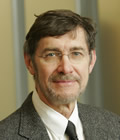What a coincidence.
Just as the Alaska State Legislature allocates $2 million for a conference promoting climate change deniers’ “expert” analysis of why polar bears aren’t really endangered, a poster boy for polar bear junk science emerges from the woodwork.
Enter J. Scott Armstrong, who is a marketing professor at the Wharton School of Business at the University of Pennsylvania. His research emphasizes forecasting methods, which he has used as the cornerstone for – you guessed it – claims that the IPCC climate change projections are actually all wrong.
Now he’s extended his “forecasts” to say that polar bears are doing just fine. He alluded to his research when Sen. James Inhofe called him as an “expert” to testify before the Senate Environment and Public Works Committee regarding the proposed endangered status of the polar bear; now, Armstrong has released an official statement advertising his paper.
Here’s the link (warning, slow website):
[…]
Professor J. Scott Armstrong of the Wharton School says, “To list a species that is currently in good health as an endangered species requires valid forecasts that its population would decline to levels that threaten its viability. In fact, the polar bear populations have been increasing rapidly in recent decades due to hunting restrictions. Assuming these restrictions remain, the most appropriate forecast is to assume that the upward trend would continue for a few years, then level off.
[…]
Prof. Armstrong and colleagues originally undertook their audit at the request of the State of Alaska. The subsequent study, “Polar Bear Population Forecasts: A Public Policy Forecasting Audit,” is by Prof. Armstrong, Kesten G. Green of Monash University in Australia, and Willie Soon of the Harvard-Smithsonian Center for Astrophysics. It is scheduled to appear in the September/October issue of the INFORMS journal Interfaces.
Armstrong’s claims regarding the increasing polar bear population have been debunked again and again (which doesn’t stop Inhofe and others from repeating the claims, of course).
Also, those who are familiar with climate change deniers will recognize Willie Soon ‘s name. He’s one of the true believers that solar activity causes global warming, which has also been repeatedly debunked (quite conclusively , in fact).
Click here (pdf) to read the paper.
My forecast is that it will be quoted over and over again throughout the deniersphere.
As the saying goes, “if you can’t dazzle them with brilliance, then baffle them with..,” well, you know the saying.
Subscribe to our newsletter
Stay up to date with DeSmog news and alerts







